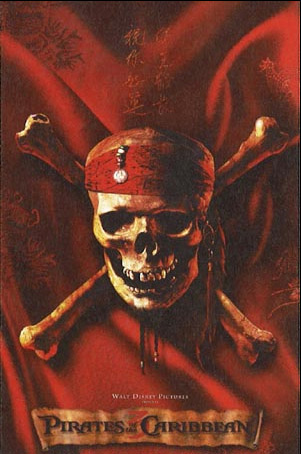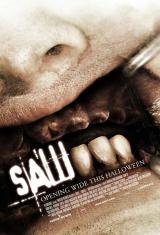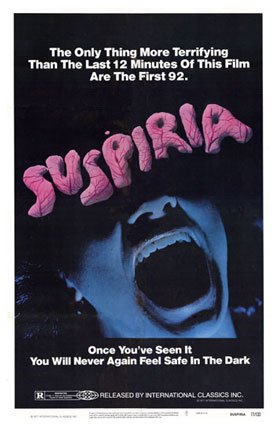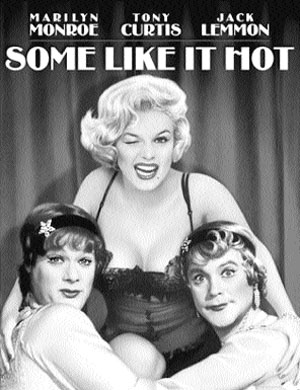
(First posted July 7th, 2006)
Today, I saw Friday the 13th for the first time ever.
Yes, I did. I’d never seen it before, as my local video shop doesn’t stock it. This week, my family decided to be adventurous and go to a different video shop. And… there it was. Needless to say, I grabbed it and clutched it to my chest like a good little movie geek. I ran straight home, and watched it.
I was disappointed.
It was okay, it had some really good kills, and I could understand why it was so huge ‘back in the day’, but really, there was nothing particularly special about it. “Your jaded noughties brain can’t understand the classics”, you may say. Not true. Bride Of Frankenstein is on my high rotation list, and I would never turn down a screening of The Omen (the original, of course). But when it came to Friday the 13th… I was indifferent to its charms. It didn’t keep me interested and, most importantly, it didn’t scare me.
Until the last five minutes.
There’s something about little Jason Vorhees leaping out of a lake, and dragging a girl out of her canoe in his wet, rotting arms. It wasn’t exactly a new concept (they used the same ‘JUMP! Oh, it was all a dream’ method in Carrie, four years previous), but bloody hell, it scared the shit out of me.
So it got me thinking, what movies have scared me the most? And, more specifically, what moments made me jump out of my skin? What haunted me for weeks? What made me sleep with the lights on?
So here they are… my top ten movie moments that scared the living shit out of me.*
(*I understand that these may not be the same as yours, oh reader. So don’t come to me and say ‘oh, but where’s that bit from Halloween?’, because I don’t care about the public’s favourite scary moments. I care about mine. (And I thought Halloween was a bit boring, to be honest. Shoot me if you must)
And, again, a warning. SPOILERS! SPOILERS EVERYWHERE!
10. Giggling Zombies
Film: The Evil Dead
Lowdown: Ash goes into the woods with his mates, reads from the book of the dead, and suddenly everyone starts going zombie.
Moment: Being raped by a tree should get some kind of award for being disturbing, but in fact it’s crazy girl zombie Linda sitting cross-legged on the floor with her head lolling about that gave me the nightmares. It’s the giggle that does it, that haunting, crazy laughter that sounds like a cross between little-girl-lost and psychotic flesh-eater while she crawls after him along the floor.
9. Stabby Stab Stab!
Film: Don’t Look Now
Lowdown: After his daughter dies, John buggers off to Venice with his wife, where he starts to see his dead daughter everywhere…
Moment: …or so he thinks. It’s the moment that little red raincoat turns around to reveal a psychotic dwarf with a knife that makes me think ‘fuck, this shit is fucked!’ and then STAB STAB! And, before you say anything, I’m not discriminating against dwarves. I’m discriminating against crazy dwarves in red raincoats that stab Donald Sutherland. Honourable mention to the extended sex scene – that was pretty traumatising too. I never want to see Donald Sutherland naked again.
8. Screaming Heads
Film: Return To Oz
Lowdown: After some electroshock therapy goes wrong, Dorothy returns to Oz (go figure) which has become a wasteland ruled by the evil Nome King and headless Princess Mombi.
Moment: While trying to escape from Mombi’s palace, Dorothy wakes Mombi’s replacement heads, which reside in the glass cases lining the castle halls. The heads immediately begin to wail in a fashion that is so haunting it puts teeth on edge. The headless Mombi then chases Dorothy through the castle, egged on by the screeching heads.
7. Where’s The Gun?
Film: The Sixth Sense
Lowdown: A little kid can see dead people. All the time. They’re everywhere.
Moment: While hiding from the ghosts in his tent, little Haley Joel Osment sees a teenage boy wandering his halls. This guy doesn’t look too bad, we think. At least not until the boy asks if little Haley Joel wants to know where his dad keeps the guns, then turns around to reveal a bloody cavity that takes up half his head. Well, at least we know where the bullets went.
6. Camera Goes Dead.
Film: The Blair Witch Project
Lowdown: In October of 1994, three student film makers disappeared in the woods near Burkittesville, Maryland. One year later, their footage was found.
Moment: This film got a lot of stick, mostly because people felt a bit ripped off by the ‘this is legitimate footage’ lie. And fair enough. But it doesn’t prevent the fact that the film’s premise is innovative (if you forget Cannibal Holocaust), and that it has some shit scary moments, mostly involving teeth. And then there’s the final moment. There’s some screaming, some forced re-enactment of the myth of the witch… and then the camera dies. And that’s it. It gave me nightmares for a week.
5. Playtime Turns Nasty
Film: Frankenstein (1931)
Lowdown: A scientist creates a man out of the remains of corpses and animates it with lightning and a murderer’s brain. The monster escapes.
Moment: Stumbling upon a little girl playing near a lake, the confused monster joins her in the delightful 30s German game of tossing flowers into the water and pretending they are boats (hey, they didn’t have television!). Having a grand old time, the monster doesn’t let the game stop when he runs out of flowers. Oh no. He picks up the little girl instead, tosses her in, and drowns her, a stupidly gleeful grin on his face.
4. A Very Dynamic Manuscript
Film: The Shining (1980)
Lowdown: An author and his family become the caretakers of an isolated hotel for the winter… but it seems they are not alone.
Moment: The wife, her curiosity getting the better of her, takes a peek at her husband’s work, the great novel he claims he has been writing for months. But instead of grand literature, all that greets her eyes is pages and pages of the same words over and over again. Say it with me now: “All work and no play makes Jack a dull boy. All work and no play makes Jack a dull boy.”
3. Is He, Or Isn’t He?
Film: Invasion Of The Body Snatchers (1978)
Lowdown: The earth is slowly being repopulated by alien clones, which replace humans while they sleep.
Moment: Donald Sutherland (he’s doing well in this list) wanders around, after managing to evade the aliens for the whole movie. His face is blank, his eyes dull, and he walks like a zombie. But is he pretending, or is he really one of them? His fellow escapee, Nancy, doesn’t know, so she takes the chance and runs up to him, babbling about escaping. Finger pointing, he turns, his voice an undeniably alien screech.
2. Some Scary Sheet!
Film: It.Lowdown: An evil clown murders the children of a small town by taking the form of their worst nightmares.
Moment: Okay, everybody knows that clowns are pretty fucking scary anyway. There’s no denying that. But when an unseen clown is stalking a little kid through that kid’s own backyard, and then appears suddenly between the sheets of the clothesline, sharp teeth dripping with drool and eyes burning with evil, it’s something that’s bound to give any kid nightmares. Or any adult.
1. Better Than 3D
Film: The Ring
Lowdown: You watch an unmarked tape. Afterwards, the phone rings, and a voice tells you you’re going to die in seven days. It’s not joking.
Moment: After being seriously unsettling for the first nine tenths of the film, Samara finally makes her appearance on the television screen, crawling out of the well in the background, staggering, dripping wet and rotting, toward the foreground (I’m pretty much inconsolable by this point), and then… crawls out of the television! I didn’t sleep for a week, I jumped every time the phone rang, and I refused to turn out the lights. I will never ever see this film again. Ever.
But finally, I must provide a dishonourable mention. This award goes to the film with a disturbing scene that doesn’t inspire terror or trauma. This award is for a horror film that goes so far into the realm of stupidity that it’s utterly disturbing, if only that they could get it made. The award, especially, goes to one certain scene.
And so, the award goes to the ghastly Troll 2. While watching television in his caravan, a teenage boy spots a show with a girl in lacy black underwear walking through the woods to 80s techno music. Suddenly, the techno seems a lot closer than he first thought, and he steps outside, coming face-to-face with black lingerie woman. She chats him up, takes an ear of corn out of her garter belt, shares it with him while they shag, and the sex is so hot the corn pops. The popcorn fills up the caravan, and he drowns in it.
And that, ladies and gents, is the scariest film moment of all time.
 Suffering from what seem to be the two afflictions of pop-culture – the sequel and the crossover – Aliens vs Predator: Requiem (or AVPR for the initiated) has a lot of baggage. At least three brilliant ancestors and a slew of questionable sequels is enough to make this a study in exploitation. Strangely enough, this is where it finds its strength.
Suffering from what seem to be the two afflictions of pop-culture – the sequel and the crossover – Aliens vs Predator: Requiem (or AVPR for the initiated) has a lot of baggage. At least three brilliant ancestors and a slew of questionable sequels is enough to make this a study in exploitation. Strangely enough, this is where it finds its strength.






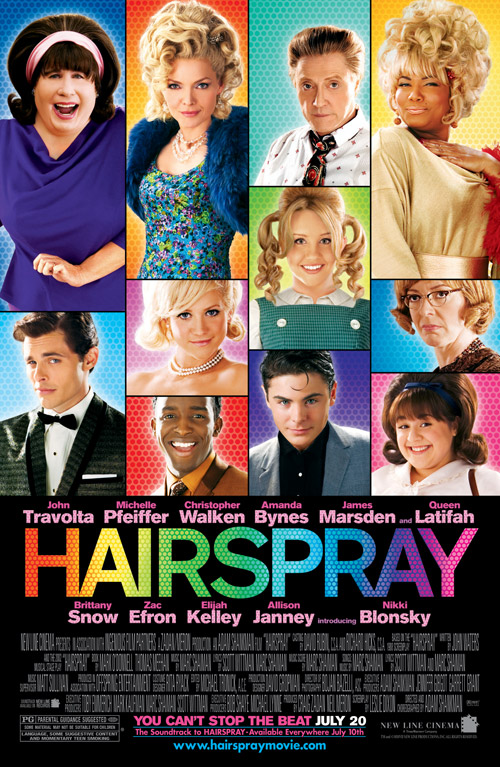
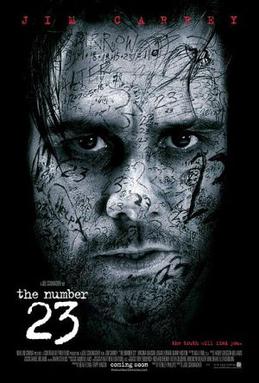




 I didn’t review this one when I saw it on its initial release. Why? I simply didn’t know what I thought of it. I knew I liked it, I knew it intrigued me, but I couldn’t quite articulate it into words. All I knew was that I had to buy the DVD.
I didn’t review this one when I saw it on its initial release. Why? I simply didn’t know what I thought of it. I knew I liked it, I knew it intrigued me, but I couldn’t quite articulate it into words. All I knew was that I had to buy the DVD.

